Hey Everyone today we’re talking RV Trailer Tires vs Light Truck Tires For Travel Trailers And Fifth Wheels. Hope you read this complete article and share it on social media channels.
I’m gonna use this article to explain the differences between (ST) special trailer tires and (LT) light truck tires. Please read the post carefully for complete information.
- RV Trailer Tires vs Light Truck Tires For Travel Trailers
- Differences Between Light Truck Tires and Trailer Tires
- Primary Objective Of Light Truck Tires
- How to Identified Special Trailer Tires
- Primary Objective Of Trailer Tires
- Trailer Sidewall Flex Is Undesirable
- Stiffer Side Wall of Trailer Tires
- Identify How many loads A Tire
- Stiffer Side Walls And Increased Carrying Capacity
- Heat Kills Tires
- Compare Weight To The GVWR Of Trailer
- If Weight Trailer Is Greater Than Its GVWR
- Maximum Pressure Indicated
- Trailer Tires Typically Don’t See Regular Use
- Cover Trailer Tires
- Conclusion:
- Differences Between Light Truck Tires and Trailer Tires
RV Trailer Tires vs Light Truck Tires For Travel Trailers
Note: And then provide you with my admittedly non-expert opinion based on my research and my experiences.
The debate rages on about whether special trailer or light truck tires are better for use in travel trailers and fifth wheels.
But hopefully, this article is helpful to you to decide on what tires to go with.
Differences Between Light Truck Tires and Trailer Tires
There are many differences between light truck tires and trailer tires and that’s because they’re designed with completely different objectives in mind.
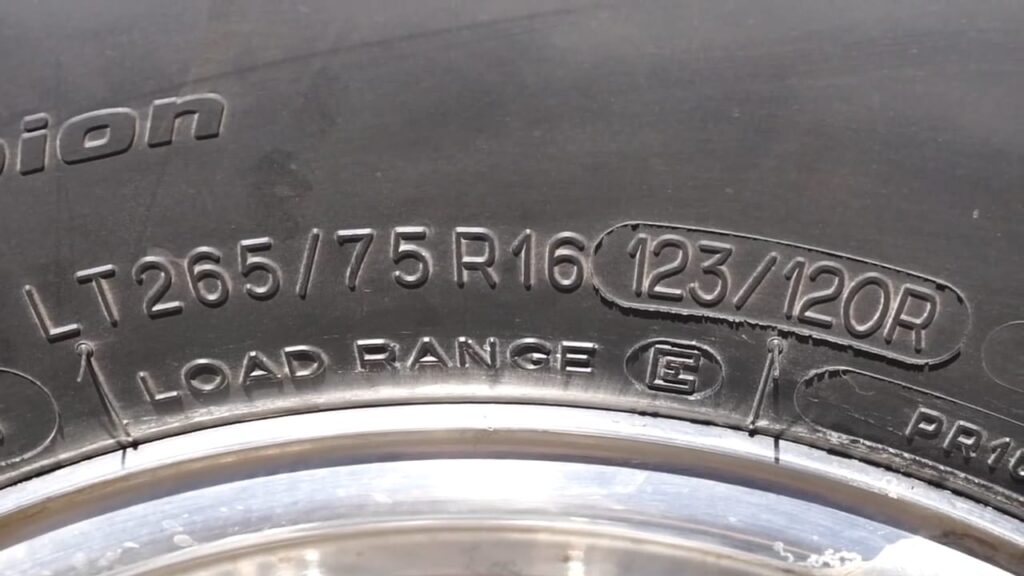
Now light truck tires can be identified by the LT on the tire sidewall just in front of the tire size numbers.
Primary Objective Of Light Truck Tires
Now the primary objective of light truck tires is to maintain traction while accelerating braking and cornering while also having decent ride comfort.
Ride comfort is achieved by having softer sidewalls when compared to trailer tires.
So that when the tire rolls over a bump it absorbs some of the energy from a bump and then, therefore, transmits less of that bump through the suspension and then onto the passenger.
Softer sidewalls are achieved by having thinner sidewalls and the steel cords and polyester cords that are throughout the tire are thinner.
And light truck tires are typically used in half-ton, three-quarter-ton, and one-ton trucks.
How to Identified Special Trailer Tires
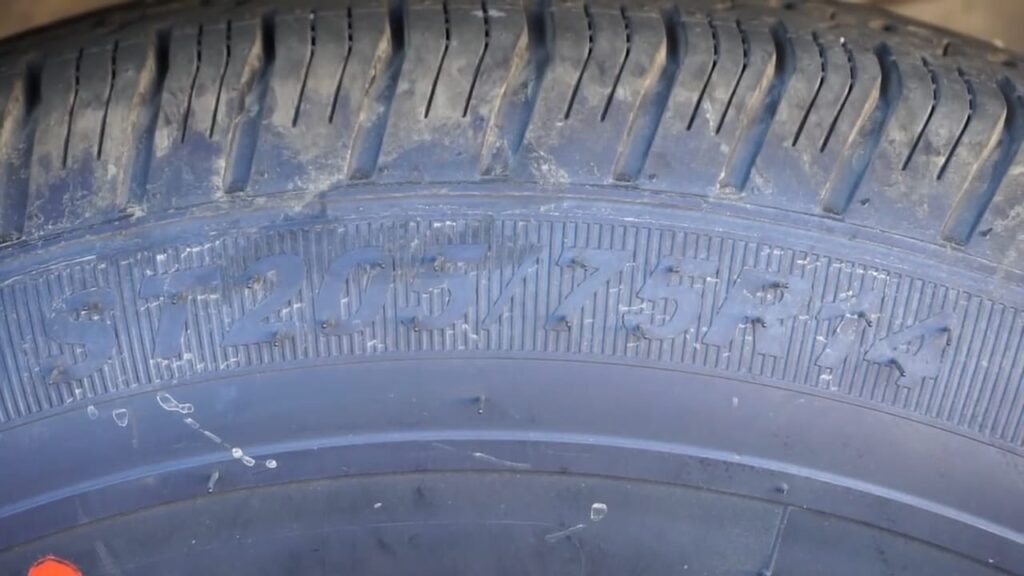
St or special trailer tires are identified by an ST on the tire sidewall just before the tire size numbers.
Primary Objective Of Trailer Tires
The primary objective of trailer tires is to minimize sidewall flex, carry heavy loads, and dissipate heat within the tire.
Minimal sidewall flex and larger load-carrying capacities are achieved through thicker sidewalls and larger steel and polyester cords running through the tire resulting in stiffer sidewalls when compared to LT tires.
Heat dissipation is achieved by shallower tread nuts and unique rubber compounds used to make the tires dissipate heat better than passenger tires.
Trailer Sidewall Flex Is Undesirable
For a trailer, sidewall flex is undesirable because it is a major cause of trailer sway.
Also, excessive heat buildup is a primary killer of tires.
Now it is for these two reasons as well as the greater load-carrying capacity of trailer tires that I recommend ST trailer tires be used for trailer applications.
Stiffer Side Wall of Trailer Tires
The stiffer sidewall of trailer tires caused the trailer to track better behind the tow vehicle.
Reduced trailer sway, lessens the risk of tire sidewall puncture, and prevents the tire from rolling under the rim while turning.
“Our travel trailer originally came equipped with ST load range c tires”.
However, they were nearing the end of their tread life so we upgraded to high-spec load range d trailer tires.
Identify How many loads A Tire
If you’re unfamiliar with load ranges they identify how much load a tire is designed to carry at its industry-specified pressures.
Letters further along in the alphabet signify a more robust tire that can withstand higher inflation pressures and carry heavier loads.
Therefore when selecting new tires for your trailer it is imperative to select tires whose load capacities are great enough to carry the trailer’s gross axle weight rating per axle.
“For us moving from the load range c tires to load range D, we are now able to inflate our tires to 65 psi as opposed to 55 psi for the load range c tires”.
Stiffer Side Walls And Increased Carrying Capacity
This coupled with the stiffer sidewalls and increased carrying capacity of load range D tires should reduce our blowout risk.
Heat Kills Tires
Now I believe that most people have issues with trailer tire blowouts because of excessive heat buildup.
Heat kills tires therefore regularly subjecting them to excessive heat buildup will cause them to fail prematurely early.
Excessive heat buildup in trailer tires is caused by three things:
- Overloaded Trailer
- Improperly Inflated Tires
- Exceeding The Tire Speed Rating
To ensure you aren’t overloading your tires take your rig to a cat scale, which is found at most truck stops like loves and Flying J’s.
First, weigh your truck and trailer together, then drop your rig and then weigh just your truck.
Subtract the second weight from the first weight and this is the weight of your trailer.
Compare Weight To The GVWR Of Trailer
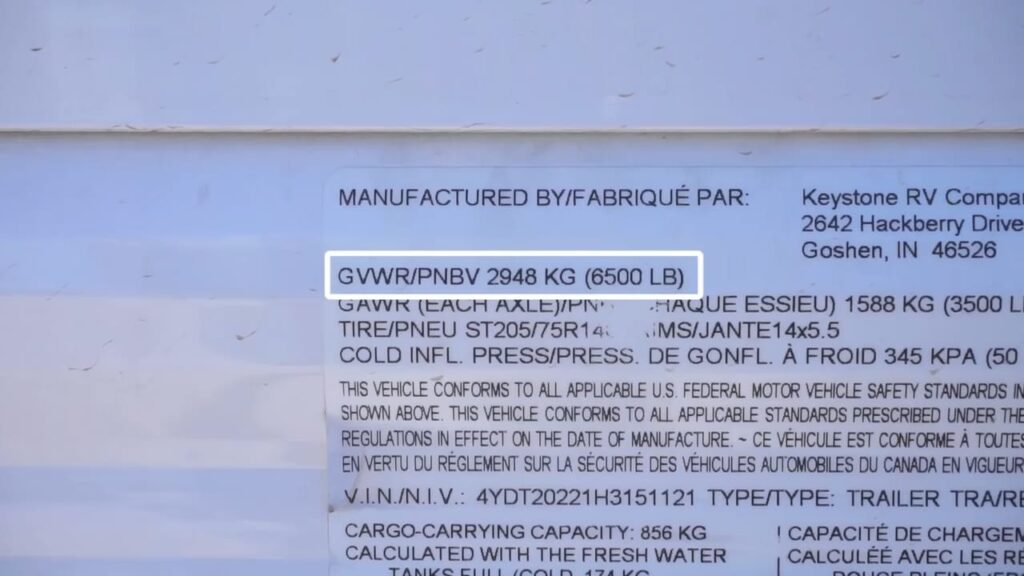
Now compare this weight to the GVWR of your trailer, this is typically found on a sticker on the side of the trailer.
Or you can also find it on the front door jamb of your trailer.
If Weight Trailer Is Greater Than Its GVWR
If the actual weight of your trailer is greater than its GVWR then you need to remove weight from it immediately.
Or you risk a tire blowout or even bending your axles.
It is equally important to maintain your trailer tire pressure.
Before each trip is sure to check your trailer tires and your tow vehicle’s tires for that matter with a tire pressure gauge.
Or you can get a tire pressure monitor system that will monitor it for you.
Popular Tire Pressure Monitor System
Maximum Pressure Indicated
Trailer tires should always be inflated to the maximum pressure indicated on the sidewall of the tire.
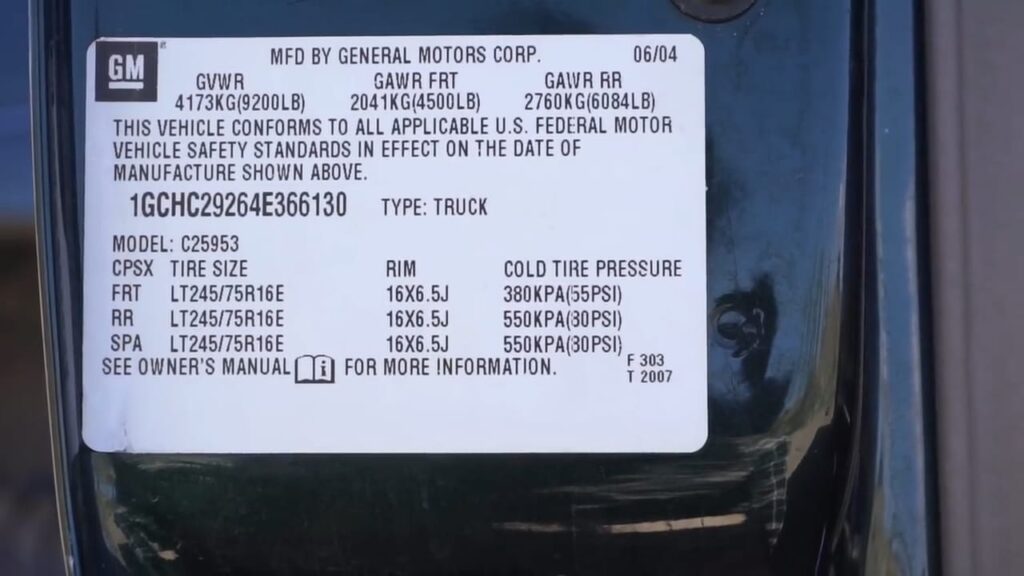
While your tow vehicle’s tires should be inflated to the tire pressures indicated on the sticker typically found on the driver’s door jamb.
Cause Excessive Heat Buildup
Under-inflated tires will not only cause excessive heat buildup leading to premature failure but will also cause uneven tread wear, faster tread wear, poor handling conditions, and increased trailer sway.
Regularly exceeding the tire speed rating will also lead to premature failure.
Believe it or not but ST trailer tires are only speed rated to 65 miles an hour.
That means every time you exceed 65 miles an hour while towing, you are causing excessive heat buildup in the trailer tires, causing them to fatigue and they will fail prematurely.
Trailer Tires Typically Don’t See Regular Use
Also, it’s important to note that trailer tires typically don’t see regular use as passenger car tire does.
So trailer tires may sit on a rig for longer than the manufacturer intended as rubber ages it becomes brittle and dry rots.
This may compromise the integrity of the tire and cause a blowout.
Most manufacturers recommend replacing trailer tires once they are 5 years old regardless of tread depth and entire appearance.
Cover Trailer Tires
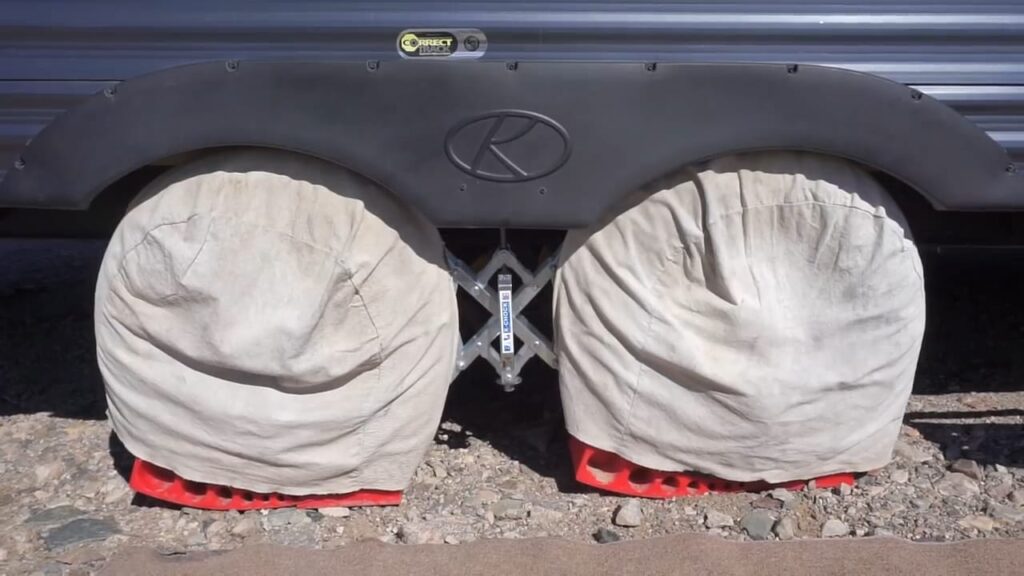
Also, it’s a good idea to cover trailer tires when the trailer is sitting to prevent UV exposure from the Sun, which also degrades rubber.
So that’s all I know about the differences between LT and ST tires.
Conclusion:
Again I believe that ST trailer tires with the proper load range rating for the weight of your rig are the correct tire choice.
Now as I said at the beginning of this article. I’m no expert these are my opinions based on my research and my experiences owning a travel trailer.
Thank You for reading this article and please like and share this post on social media channels like Facebook and Twitter. Comment down below if you have any queries.


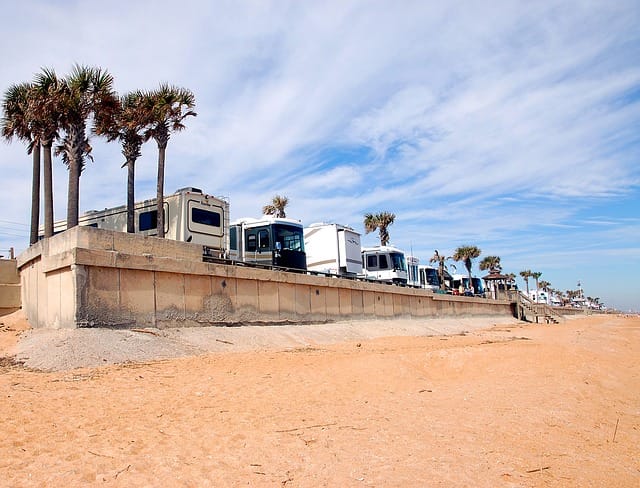
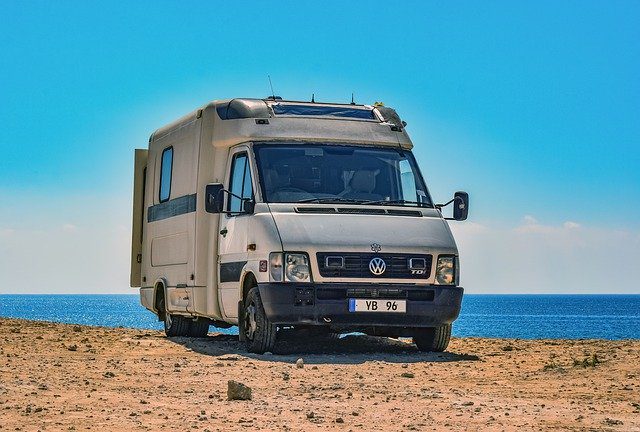
One thought on “RV Trailer Tires Vs Light Truck Tires For Travel Trailers And Fifth Wheels”